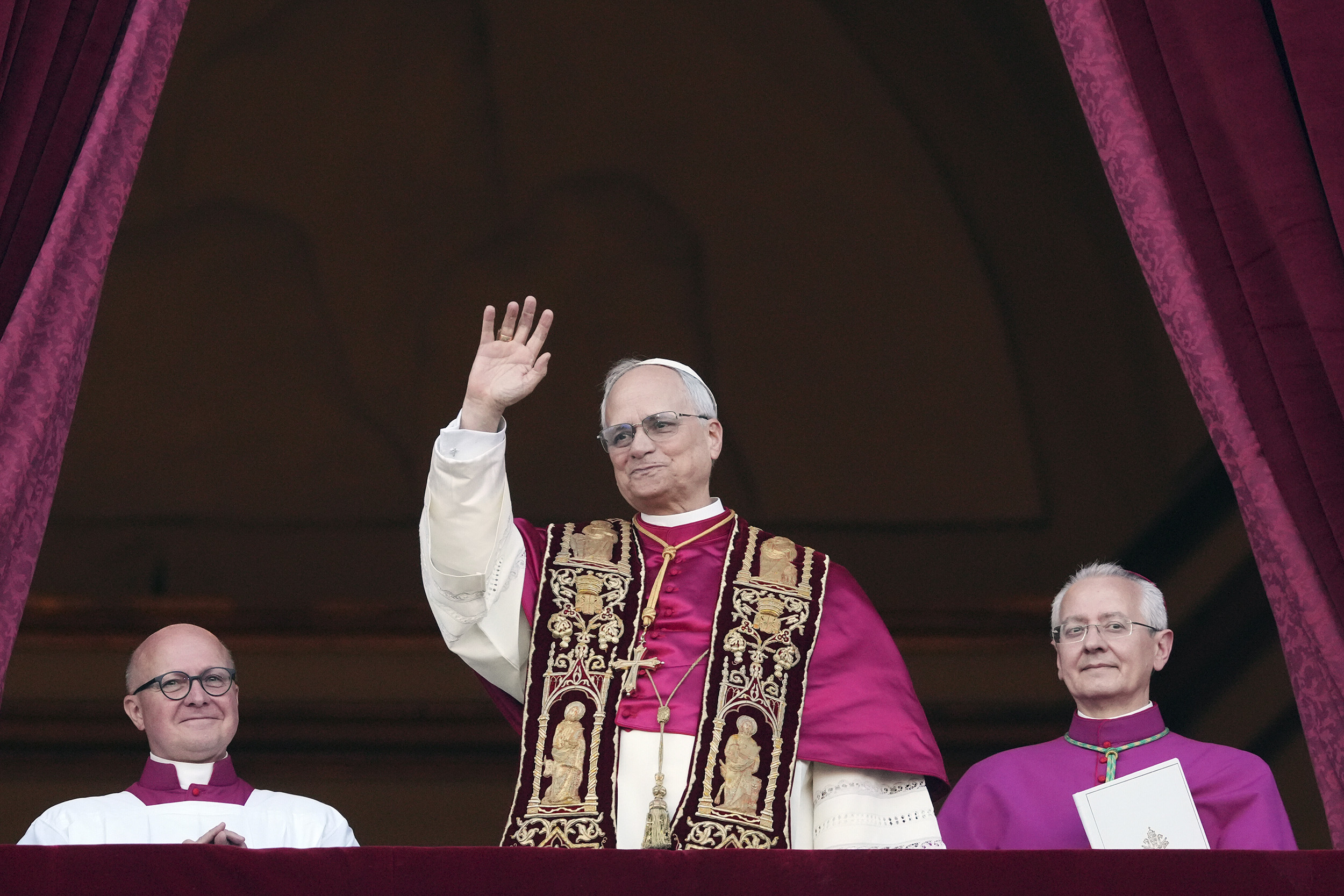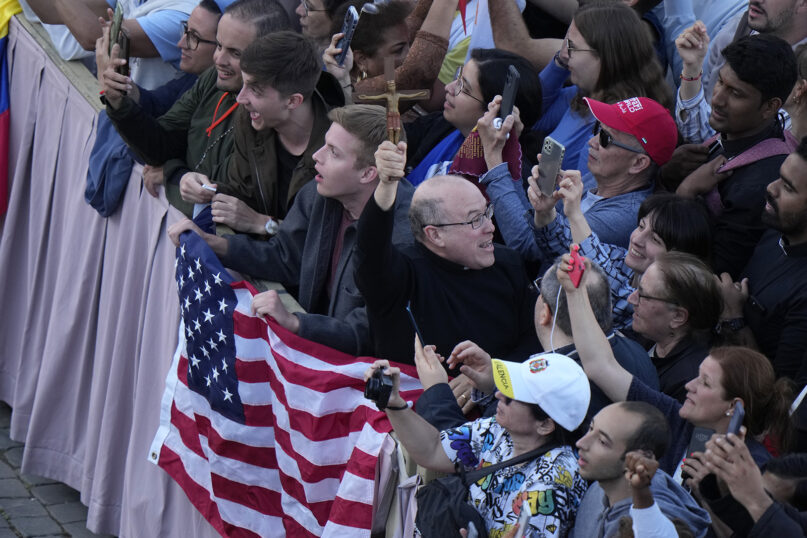
VATICAN CITY (RNS) — In a shocking vote that caught the Catholic world by surprise, the College of Cardinals elected Robert Francis Prevost, 69, the 267th pope on Thursday (May 8). He is the first United States citizen to become the bishop of Rome.
The Chicago-born Prevost has chosen to take the name Pope Leo XIV, signaling a kinship with the 19th-century Pope Leo XIII, who was known for opening the doors of the church to the world and made Catholic social teaching a central issue during his pontificate.
As he walked out of the loggia onto the balcony of St. Peter’s Basilica to greet the cheering crowd in the square below, the new pope said, “Peace be with you all!” Remembering the Easter season being celebrated in the church, he added, “I would like this greeting of peace to reach all people, in the entire world.”
At his mention of his predecessor, Pope Francis, who died April 21, the crowd roared, and the new pope reminded them: “We are all in the hands of God. Hence, without fear, united hand in hand with God and with each other, we go forward. We are disciples of Christ. Christ precedes us!”
Corinne Bernhard, a Chicagoan who was in the crowd, said “it feels surreal” to have a pope who was born in Chicago.
Miles Redwine, a Catholic visiting from the small Texas town of Chester, said, “I would’ve never thought in a million years that it would’ve been an American.” Marie Clack, who was traveling with him, said, “I almost started crying, full body chills.”
Prevost is a former head of the Order of St. Augustine and was the only member of the ancient order in the conclave. In his role as prior general from 2001 and 2013, Prevost traveled widely, gaining hands-on experience about the demands and priorities of the many countries where the Augustinians serve.
He graduated from Villanova University and Catholic Theological Union but has spent much of his career outside the U.S., having served from 2015-2023 as the archbishop of Chiclayo in Peru, where he also holds citizenship.
Jaisy Joseph, assistant professor of systematic and constructive theology at Villanova University, said on Thursday: “Bells are ringing. People are in shock or in various stages of excitement. Tears have been shed.”
When she met him with Villanova students last October, Joseph said, she could see his Augustinian spirit. “It’s about friendship. It’s about community,” she explained. “We felt that warmth. We felt that he was really present to the individuals that were in front of him, and so I think that’s part of his formation.”

People react after Cardinal Dominique Mamberti announced the election of Cardinal Robert F. Prevost as the 267th pope, choosing the name of Pope Leo XIV, at the Vatican, Thursday, May 8, 2025. (AP Photo/Luca Bruno)
He couples his pastoral experience working in parishes and heading a diocese with a keen understanding of church law. He holds a degree in canon law from the Pontifical College of St. Thomas Aquinas in Rome, a positive for a pope who will face many legal and procedural issues as pope.
Francis brought him to Rome to serve as president of the Pontifical Commission for Latin America, as well as the head of the Dicastery for Bishops — a powerful Vatican office that vets bishops around the world. Francis elevated him to cardinal in September 2023. Two years later, Francis made him a cardinal-bishop, the highest rank among cardinals.
As the head of the Dicastery for Bishops, taking over the role from the more conservative Canadian Cardinal Marc Ouellet, he assisted Francis in appointing bishops who shared the late pontiff’s priorities. Prevost was also the first to appoint women to assist him in the task of selecting bishops.
He has kept a low profile in Rome, making his views on hot-button issues something of a mystery. But in a rare interview with Vatican News, he painted the picture of a church leader that “must not hide behind an idea of authority that no longer makes sense today. The authority we have is to serve, to accompany priests, to be pastors and teachers.”
In that same interview, he said that prelates are often “preoccupied with teaching doctrine,” at the risk of forgetting the message of the Gospels.
The quickness of his election demonstrates a unity among the cardinals, who have been portrayed as a polarized group as they headed into the conclave, and in recent decades as Francis’ style produced strong reactions, especially from conservative churchmen. But in a College of Cardinals of which 80% had been elevated by Francis and inspired by his message of welcoming and inclusion, the choice of a progressive such as Prevost may have been anticipated.
Prevost himself spoke of the divisions in the church in his Vatican News interview, saying, “We bishops especially must accelerate this movement towards unity, towards communion in the church.”
Prevost may have played a role in the sidelining of U.S. Bishop Joseph Strickland, who had become notorious for his resistance to COVID-19 vaccines and sharp criticism of Pope Francis. In 2023, Prevost met with Francis and Archbishop Christophe Pierre, the papal nuncio, or ambassador, to the United States, and speculation was that the conversation centered on the process of asking for the resignation of the bishop.
Strickland, who has garnered a following among some right-wing Catholics in the U.S., told Religion News Service he would not retire voluntarily, but he was removed from his post roughly two months later.
RNS national reporter Jack Jenkins contributed from Washington, D.C., to this report.
